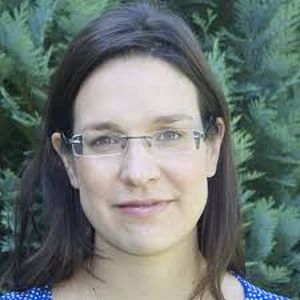Isabelle Côté est professeure agrégée au Département de Science Politique à l’Université de Memorial à Terre-Neuve. Elle a reçu son doctorat en Science Politique de l’Université de Toronto en 2014 et fut une étudiante postdoctorale à KITLV (Royal Netherlands Institute of Southeast Asian and Caribbean Studies) à Leiden, aux Pays-Bas. Avant cela, elle a occupé plusieurs positions de chercheuse invitée en Chine, Indonésie, Suède et au Danemark. Ses recherches portent principalement sur le rôle des facteurs démographiques en général, et des mouvements de population internes en particulier, sur les conflits intra-étatiques, les mouvements nativistes et sur les politiques contentieuses en Asie. Elle a publié dans de nombreuses revues académiques, incluant PS: Political Science and Politics; Democratization; Civil Wars; Ethnopolitics; Studies in Conflict and Terrorism. Isabelle est sur le comité exécutif de WIIS-Canada et membre du conseil scientifique du Rubicon. Elle a déjà servi sur le conseil exécutif de Canadian Council for Southeast Asian Studies, du ISA-Political Geography and Demography, et a aussi été la Présidente de Atlantic Provinces Political Science Association (APPSA).
Champs d'expertise
- Conflit ethnique
- Migration
- Asie
Publications importantes
Côté, Isabelle (2022) “Internal migration and resource conflict: Evidence from Riau, Indonesia”, accepted for publication in Journal of Global Security Studies, 7(1).
Côté, Isabelle and Emma Huang (2020) “Where are the Daughters in “Sons of the Soil” Conflict? Examining the Effects of Gendered Migration on Violent Conflict”, Studies in Conflict and Terrorism 43(10): 837-853.
Côté, Isabelle, Matthew I. Mitchell and Monica Duffy Toft [eds] (2019) People Changing Places: New Perspectives on Demography, Migration, Conflict and the State. Routledge.
Côté, Isabelle and Matthew I. Mitchell (2017) “Deciphering Sons of the Soil Conflicts: a critical survey of the literature”, Ethnopolitics 16(4): 333-351.
Côté, Isabelle and Matthew I. Mitchell (2016) “Elections and Sons of the Soil conflict dynamics in Africa and Asia”. Democratization 23(4): 657-677.




Les commentaires sont fermés.